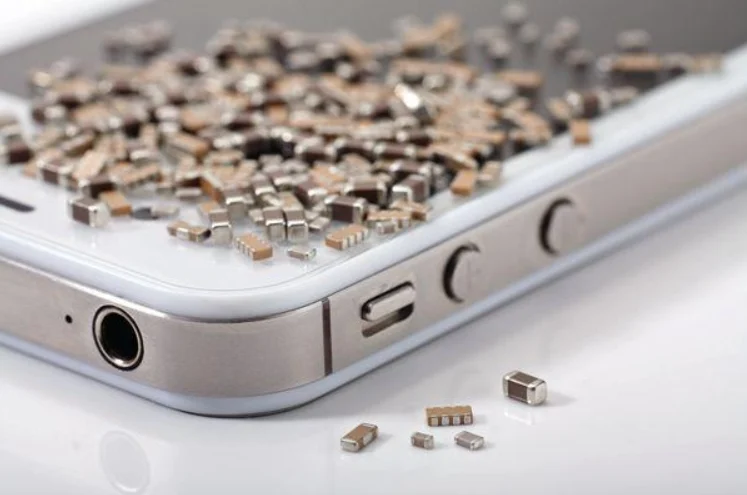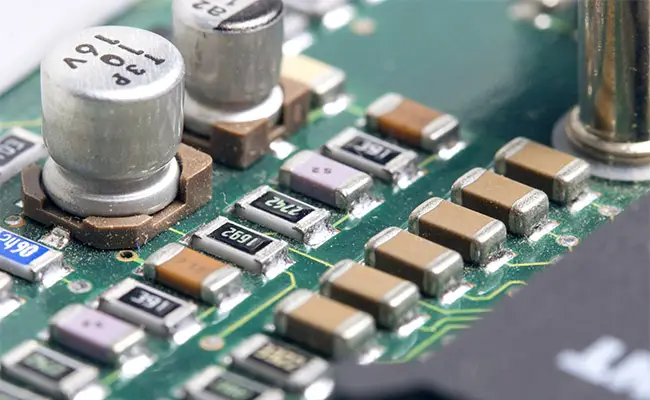Inductors are a common electronic component used to store electrical energy and resist changes in current. In the classification of inductors, there are mainly two types: shielded inductors and unshielded inductors. Generally speaking, the enameled wire of unshielded inductors is exposed outside without a magnetic shielding cover; shielded inductors have a magnetic shielding cover on the outside, which has good shielding and anti-EMI effects, reducing the electromagnetic interference of the inductor to the outside world and weakening the interference of the electromagnetic field generated by the circuit to other components. This article will focus on the differences between shielded inductors and unshielded inductors.
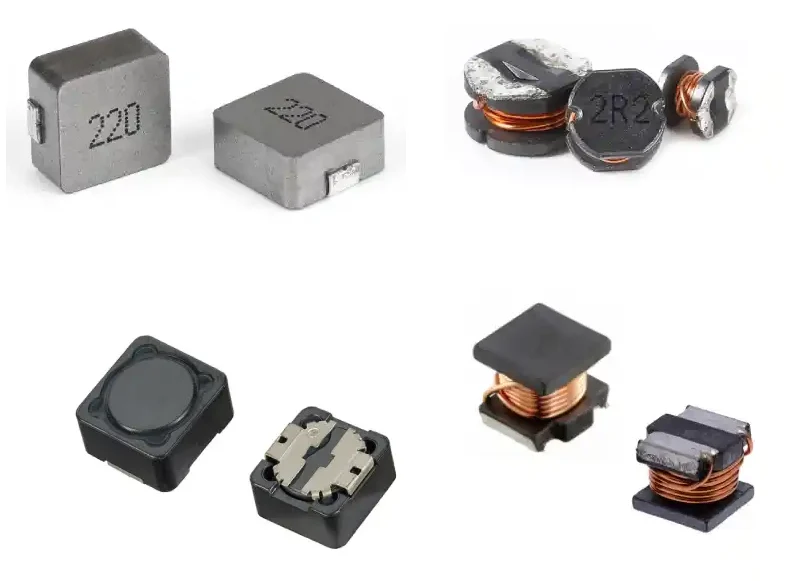
Shielded inductor is a special inductor device with an external additional structure or shielding cover to reduce or block the impact of electromagnetic interference. It is widely used in electronic equipment and circuits to provide better electromagnetic compatibility and signal integrity. Unshielded inductor has no external magnetic shielding cover, small size, surface mount type, easy to surface mount. The appearance size meets the environmental assessment standards and is available in different sizes. It has excellent welding heat resistance, suitable for general welding and reflow soldering, better frequency characteristics, unshielded ferrite core structure, and low cost. Shielded inductor and unshielded inductor are actually two magnetic circuits, one is an open magnetic circuit and the other is a closed magnetic circuit. The so-called closed magnetic circuit refers to the entire closed magnetic circuit composed of magnetic materials, while the open magnetic circuit refers to a clear air gap in the magnetic circuit.
1. Can Shielded Inductors and Unshielded Inductors Be Used Interchangeably?
Shielded inductors: Shielded inductors usually have a metal shell or shielding cover wrapped around the inductor coil to reduce interference from external electromagnetic fields. The external structure of the shielded inductor can block electromagnetic radiation, absorb electromagnetic energy, and effectively reduce the impact of electromagnetic interference.
Unshielded inductors: Unshielded inductors have no additional external structure or shielding cover, only contain coils and magnetic materials, and are mainly used to store and release electrical energy, and provide inductive reactance and filtering functions in the circuit.
Because shielded inductors have additional shielding structures, they are usually more effective in reducing the impact of electromagnetic interference than unshielded inductors. However, shielded inductors and unshielded inductors are not completely interchangeable. In specific applications, it is crucial to select the appropriate inductor device based on the required electromagnetic compatibility and anti-interference capabilities.
(★ If you want to know more about inductors, please refer to this article: • that shielded inductors and unshielded inductors are not interchangeable?)
2. What is the Function of Shielded Inductors?
Electromagnetic interference suppression: Shielded inductors can effectively block the interference of external electromagnetic fields on inductor devices through external metal shells or shielding covers, provide better anti-interference capabilities, and make the signals in the circuit more stable and reliable.
Electromagnetic radiation suppression: Shielded inductors can also reduce the electromagnetic radiation generated in the circuit to avoid interference with other electronic devices and systems. By wrapping the coil in a metal shielding layer, electromagnetic radiation can be absorbed and isolated and limited to a smaller range.
Improve signal integrity: Shielded inductors are widely used in high-frequency circuits to reduce crosstalk and mutual influence between circuits, provide better signal integrity, make signal transmission more stable, and reduce distortion and noise.
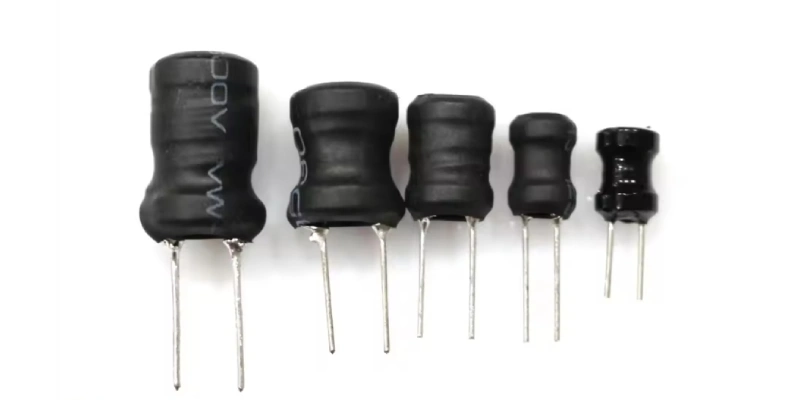
3. What is the Main Function of Unshielded Inductors?
Filtering function: Through its inductance characteristics, unshielded inductors can play a filtering role in the circuit, which helps to stabilize the current and reduce the voltage fluctuations in the circuit, thereby protecting the circuit from unnecessary interference.
Power transmission: Unshielded inductors play an important role in low-frequency power transmission, such as in frequency converters, DC regulated power supplies and other fields. Unshielded inductors effectively transmit and convert power through their structural characteristics to ensure the normal operation and efficiency of the circuit.
In addition, unshielded inductors also have the characteristics of small size, surface bonding, and easy surface mounting. These characteristics give unshielded inductors certain advantages in circuit design and application.
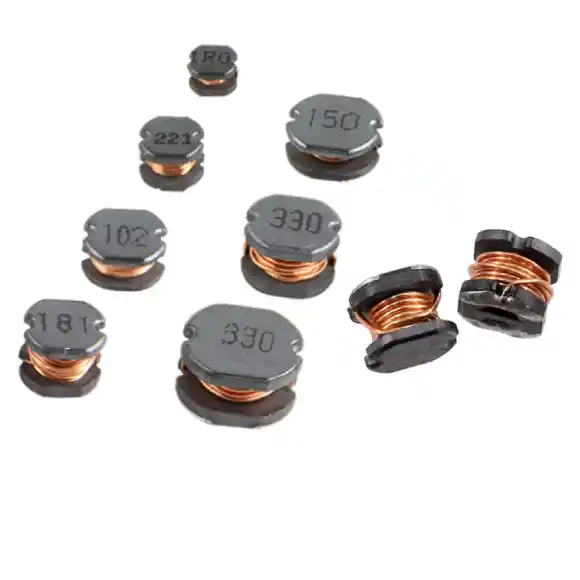
4. Differences Between Shielded Inductors and Unshielded Inductors
a. Structural differences: Shielded inductors have one or more metal covers to block external interference, and these metal covers are usually made of ferrite, magnetic material or metal. They can effectively shield interference from external magnetic and electric fields. In contrast, unshielded inductors do not have such metal covers, only coil windings and iron cores.
b. Anti-interference ability: Since shielded inductors are protected by metal covers, they have stronger resistance to interference from external magnetic and electric fields. This makes shielded inductors more popular in high-noise environments or applications with higher requirements for anti-interference capabilities. In contrast, unshielded inductors have poor resistance to external interference.
c. Size and weight: Since shielded inductors have metal covers, their size and weight are usually larger. In contrast, unshielded inductors are usually smaller and lighter because they do not have additional metal covers.
d. Cost differences: Since shielded inductors require additional metal covers to provide anti-interference functions, their manufacturing costs are usually higher. Unshielded inductors have relatively low manufacturing costs due to their simple structure.
In short, the role of shielded inductors is to reduce the impact of electromagnetic interference by providing additional shielding structures to protect the stability and signal integrity of the circuit. These characteristics make shielded inductors widely used in high-frequency circuits, electronic devices and sensitive systems. The difference between shielded inductors and unshielded inductors mainly lies in structure, anti-interference ability, size, cost and other aspects. This is the difference between shielded inductors and unshielded inductors. If you want to know more about inductors, you can click on the blog category of our website for detailed information.

